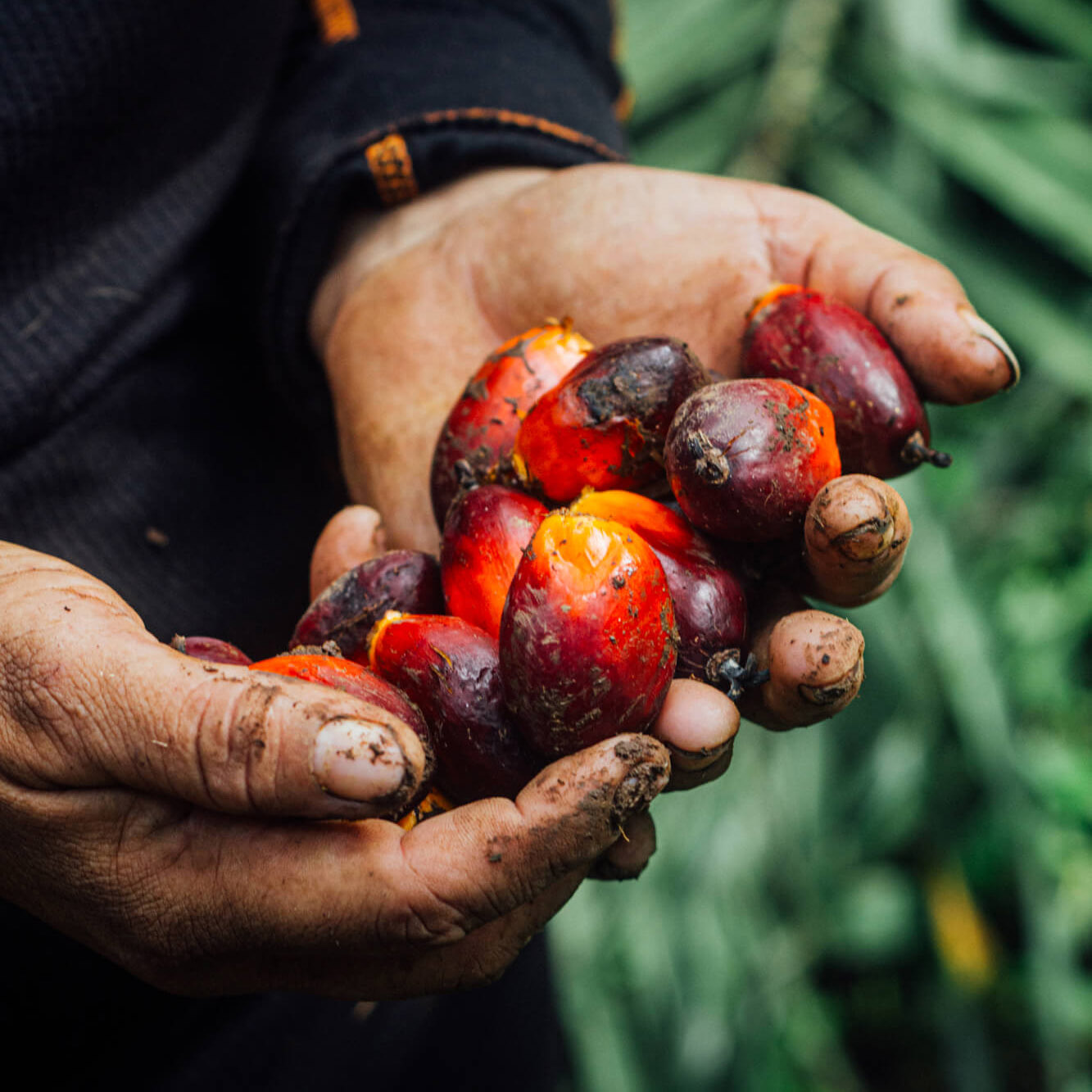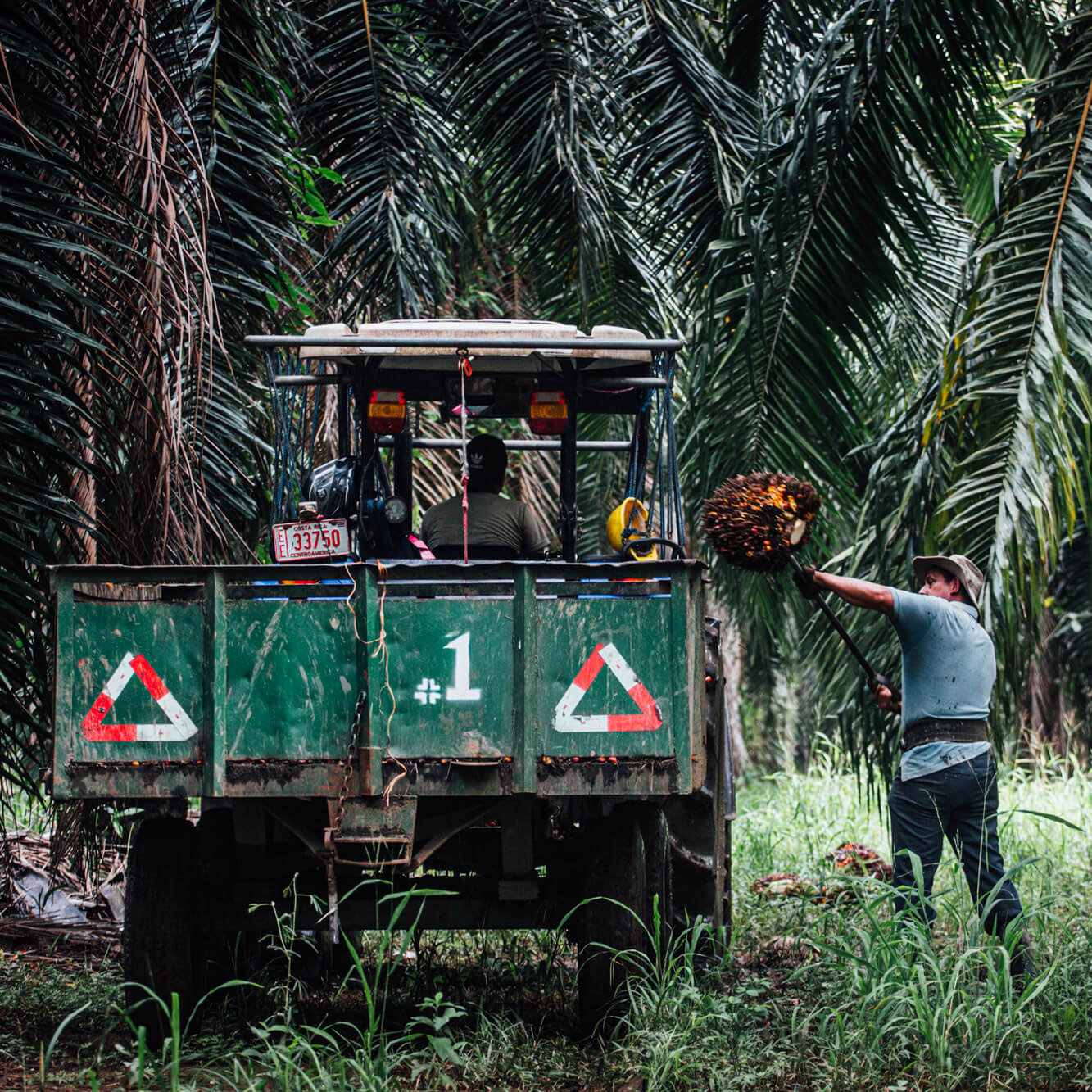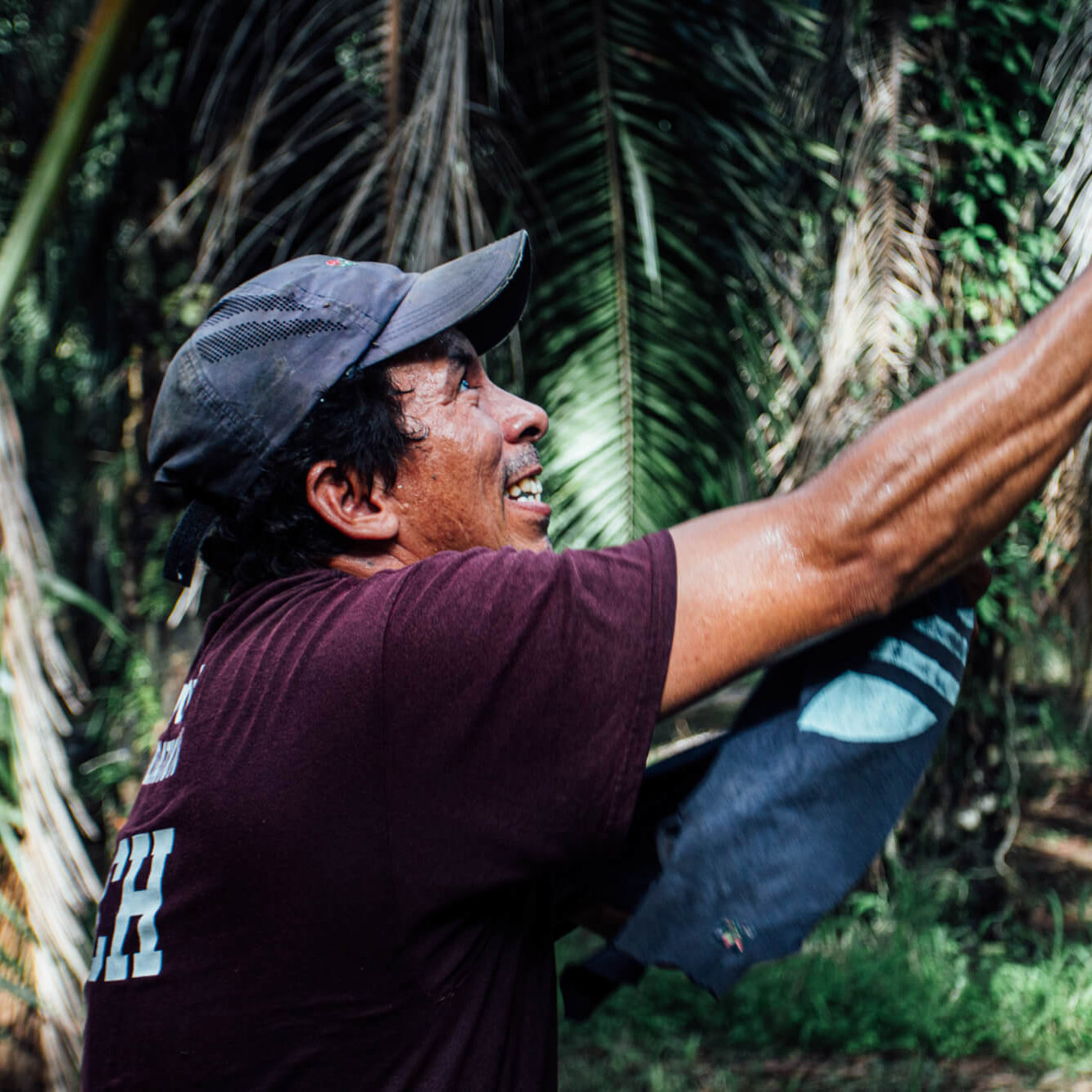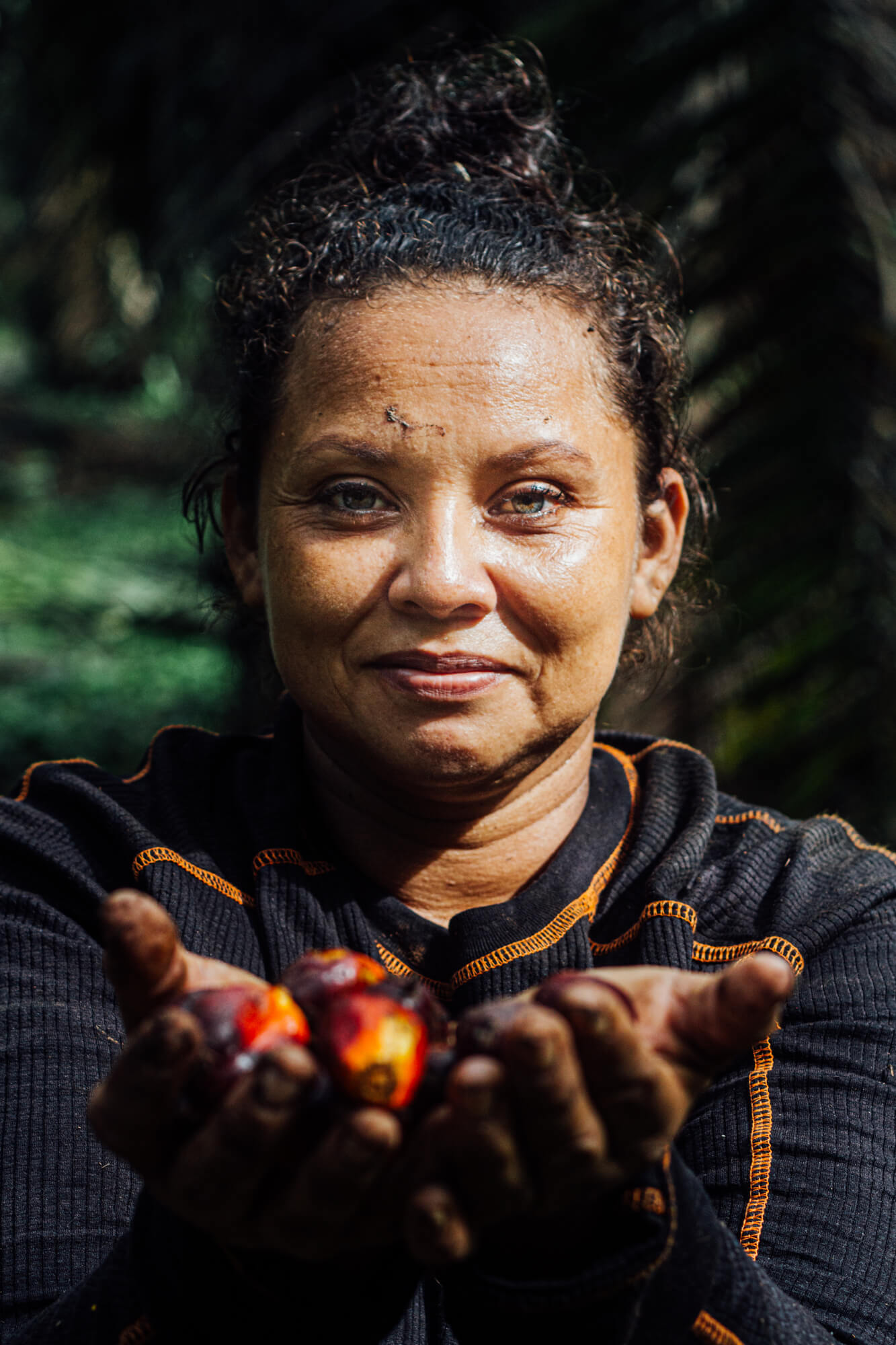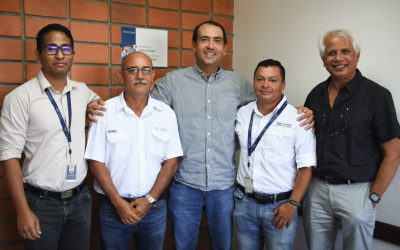Palm Oil
OUR TRACK RECORD IN PALM CULTIVATION
Since its beginnings in 1986, African oil palm cultivation (Elaeis guineensis) has been an exciting project for us at DAPASA (Agricultural Development of Parrita, S.A.). Our history in this industry is woven through decades of dedication and constant effort.
The first palm transplants took place at La Ligia Farm in Parrita, marking the beginning of our commitment to this noble plant. Today, some of those palms are an impressive 37 years old, while the youngest ones are 4 years old since transplantation. This variety in ages reflects our continuous investment and expansion in this cultivation.
CONTRIBUTING TO A SUSTAINABLE FUTURE
Our mission in the Oil Palm business is to maintain stability and competitiveness, providing employment to our 80 collaborators and contributing to the social development of our neighboring communities. We value the collaboration of these communities in our agricultural production system.
Regarding our vision, we aim to increase the yields of our cultivation through the use of environmentally friendly technologies. Our methodologies are based on a circular economy that enhances efficiency in our processes and moves towards a more sustainable future in this business.
Personnel
Years of production
Hectares
Anual Tonnage
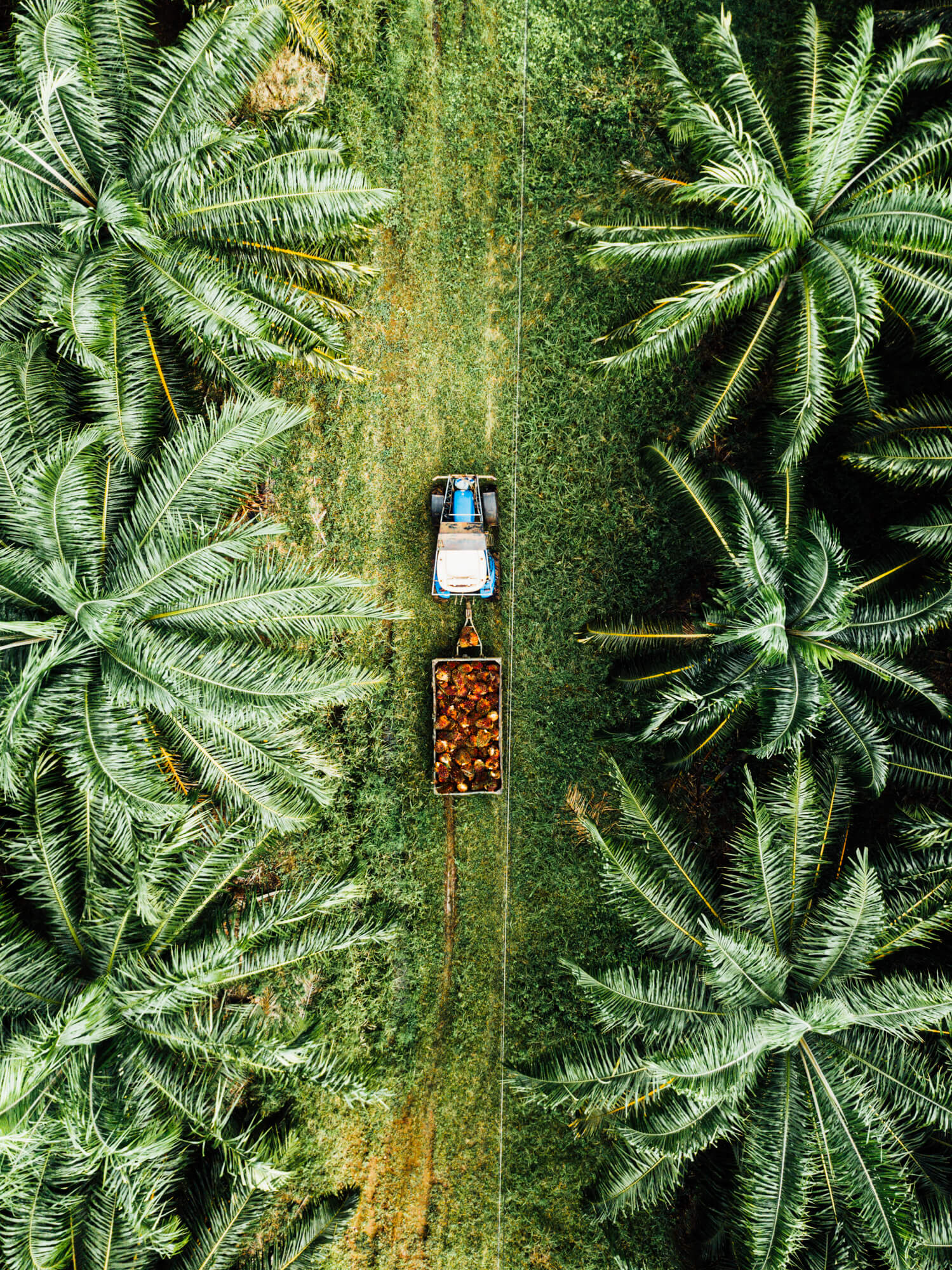
CULTIVATING SUCCESS AND SUSTAINABILITY IN CENTRAL PACIFIC OF COSTA RICA
Our location in the Central Pacific of Costa Rica, in the canton of Parrita, province of Puntarenas, places us in a region with a rich agricultural tradition, where crops such as rice, African oil palm, and livestock stand out.
Over the years, we have learned, grown, and evolved in the world of African palm cultivation, always seeking excellence and sustainability in every step of our process. We are committed to continuing this journey with the same enthusiasm and dedication that has brought us to where we are today.
37-YEAR TRAJECTORY IN AFRICAN OIL PALM PRODUCTION IN PARRITA
Over the past 37 years, our company has been cultivating African oil palm in the Parrita region. As a leading company in this agricultural sector, located just 25 kilometers from the vegetable oil extraction plant and being one of the associated producers to the plant in the productive area with the highest number of cultivated hectares, we have provided a lot of job stability to the local people over the years. Additionally, our growth in production yields and cultivated areas has been significant.
CLIMATE AND EXPANSION
The area is characterized by its warm climate with temperatures ranging from 25°C to 33°C, as well as high solar radiation, which is essential for the optimal development of African oil palm. In recent years, we have experienced an average annual precipitation of 3,700 mm with two distinct climatic seasons: a dry season from December to April and a rainy season from May to November, with transitions in April and December. Currently, we manage 550 hectares of African oil palm and are considering expanding our plantations in suitable areas, such as Ciudad Cortez in the South of the country and Barbudal in the Central Pacific.
OUR VARIETIES AND ADVANCEMENTS
In terms of the varieties we cultivate, we manage Deli x Ekona, as well as Themba and Compacta x Nigeria. The Deli x Ekona palms are the oldest and tallest, reaching approximately 17 meters in height, while in more recent plantations, we have evolved towards the planting of compact hybrids that simplify harvesting and allow for a greater number of plants per hectare.
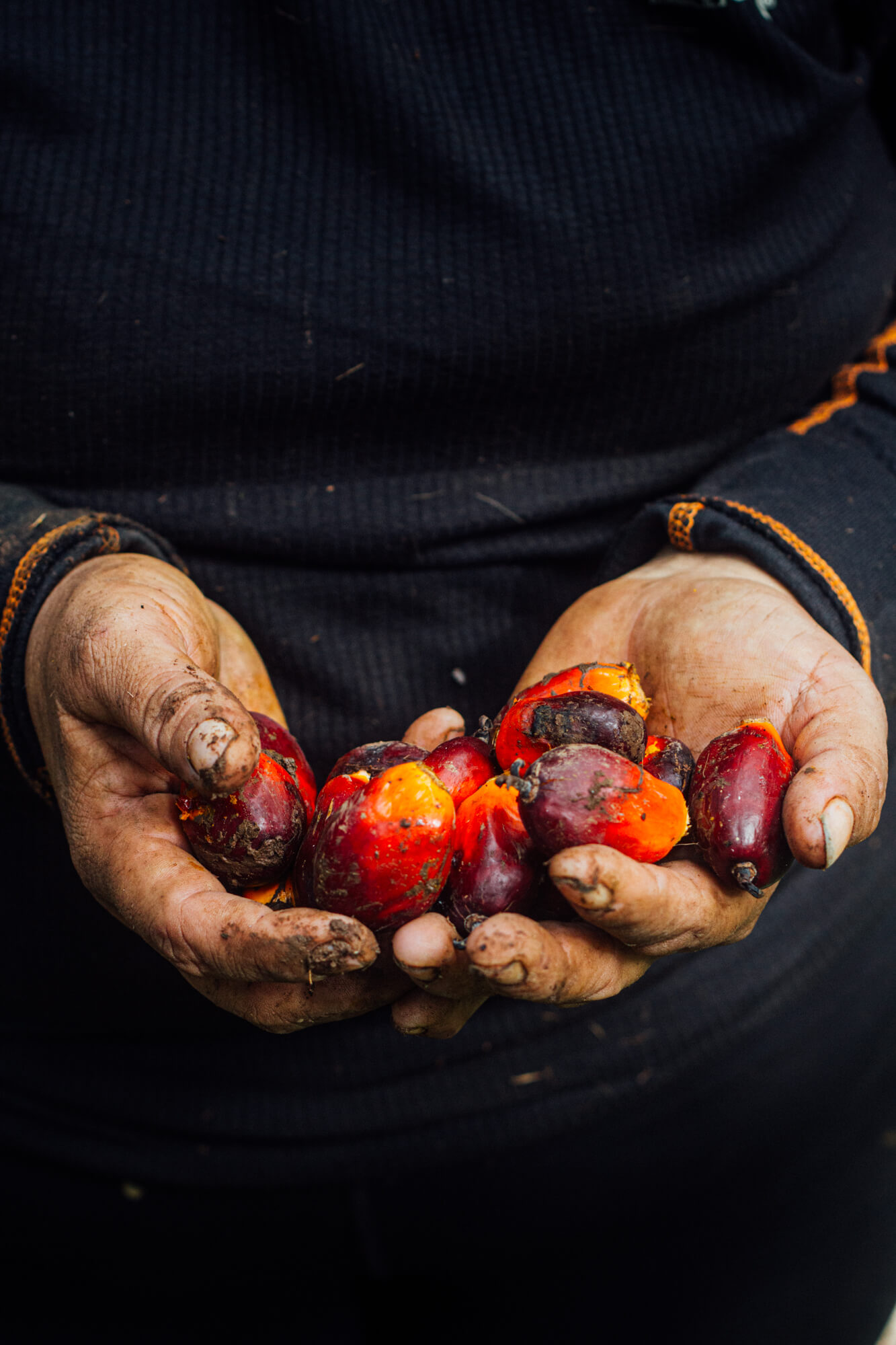
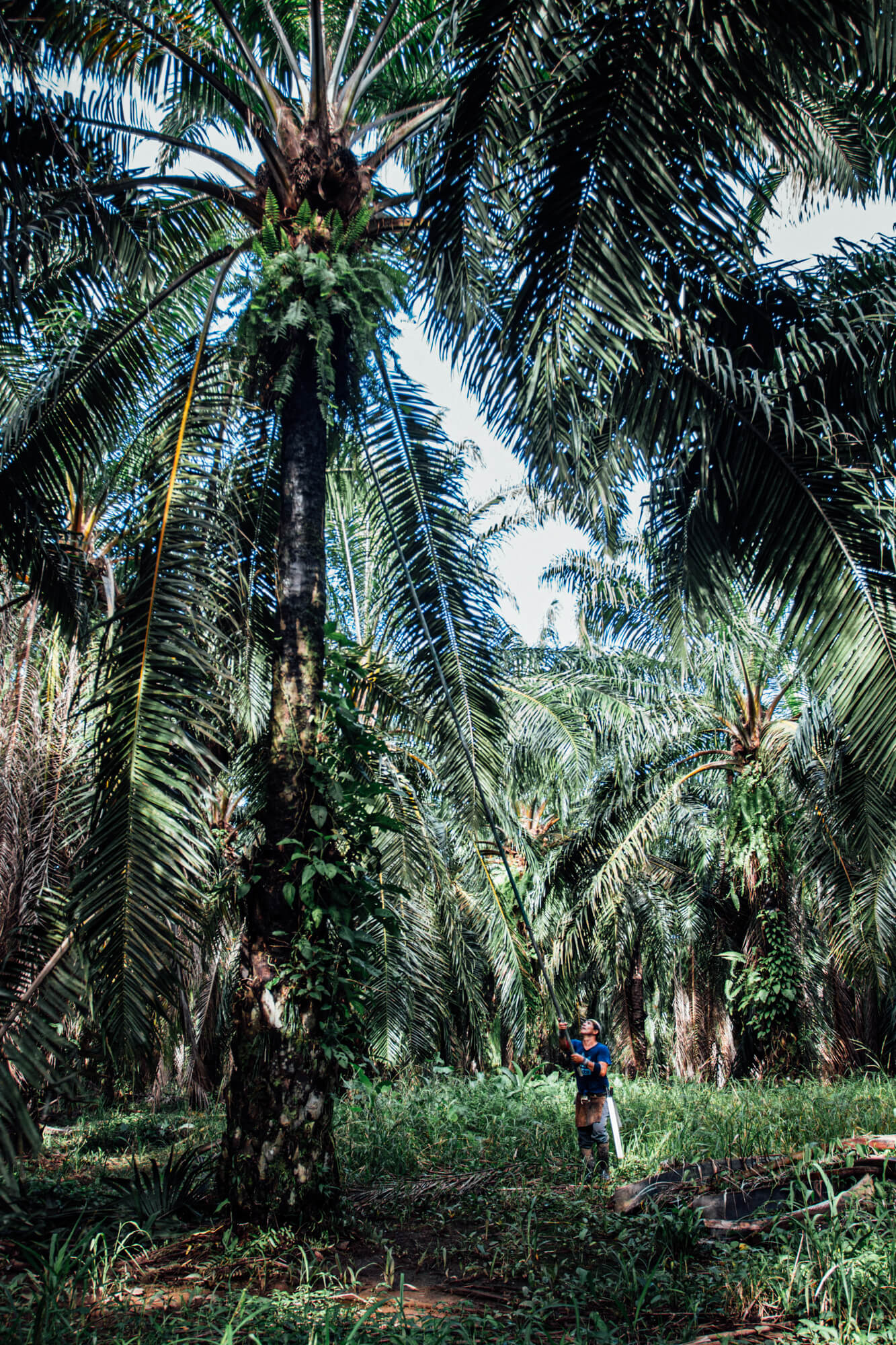
EXCELLENCE IN PRODUCTION: 20-25 METRIC TONS OF FRESH OIL PALM FRUIT PER YEAR
Our average yield per hectare is between 20 and 25 metric tons of fresh fruit per year, obtaining the highest percentage of our harvest as the best quality for achieving high oil contents. More importantly, we meet the RSPO certification, which guarantees the use of sustainable practices for palm oil production, reflecting our commitment to the environment, local culture, and economic growth of the community at every stage of our oil palm cultivation process.
RSPO CERTIFIED: GUARANTEE OF SUSTAINABILITY AND QUALITY
Our farms are certified under the RSPO standard, which supports our commitment to sustainability and the implementation of good agricultural practices in our daily operations, ensuring the quality of our final product. We are also committed to our employees, their culture, and their economic growth, respecting and guaranteeing their workdays, providing them with necessary protective equipment and inputs to carry out various operations in a healthy environment, and implementing agricultural practices that benefit environmental protection.
OUR GREEN FOOTPRINT
These sustainable practices not only protect our environment but also benefit local communities by providing employment and supporting the social development of families residing near our plantations. Additionally, we are proud to have RSPO (Roundtable on Sustainable Palm Oil) certification, which supports our commitment to sustainability and environmental conservation in our Oil Palm business.
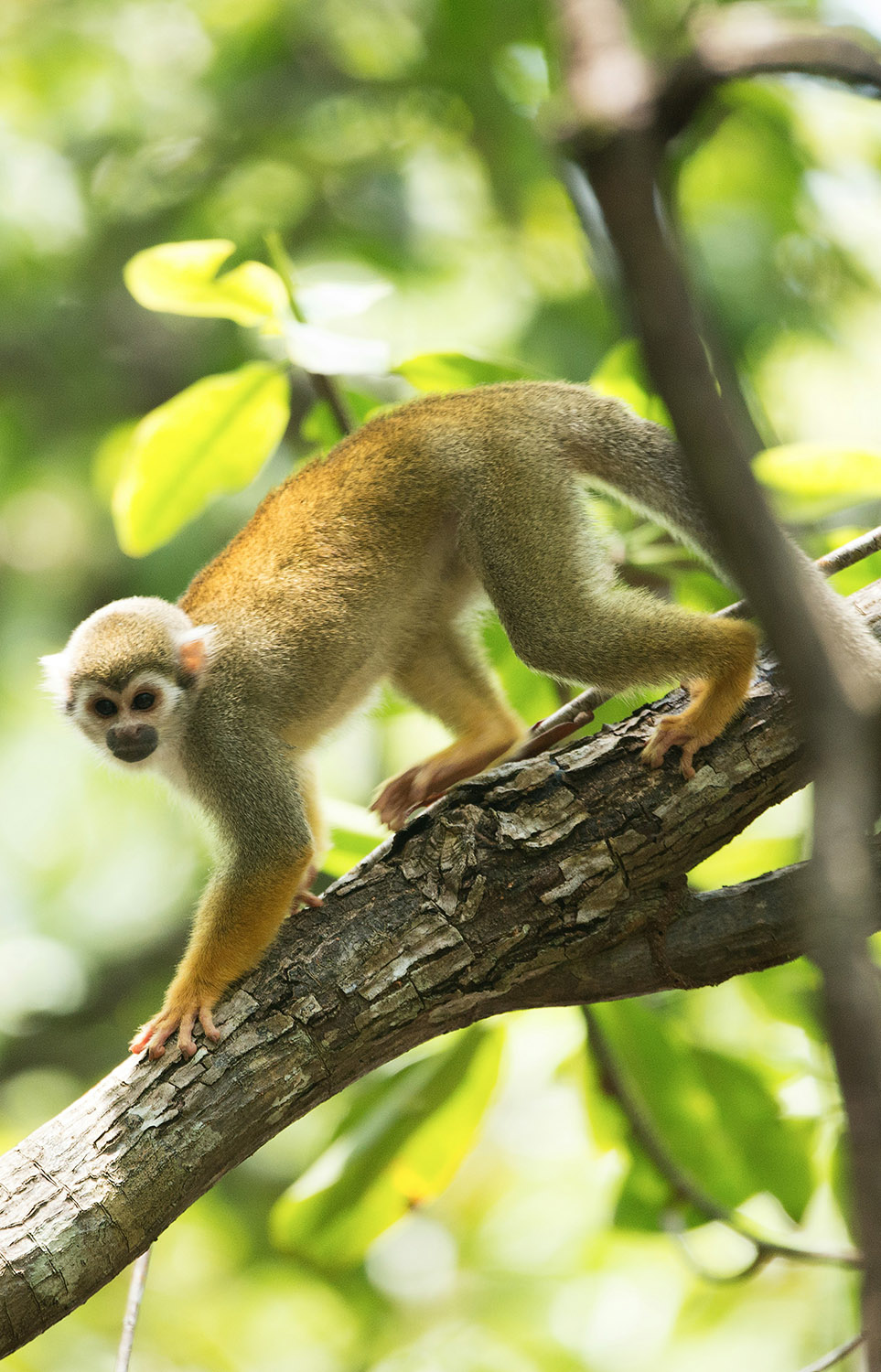
COMMITTED TO THE ENVIRONMENT AND THE COMMUNITY
In our Oil Palm business, sustainability is our priority. Our plantations also serve as biological corridors for various species, including squirrel monkeys (Saimiri oerstedii).
To minimize our environmental impact, we avoid the use of synthetic insecticides and instead apply techniques such as trapping with molasses and pheromones to control pests like the Rhynchophorus palmarum. Additionally, we implement soil conservation practices, such as the use of green cover crops, especially the legume Kudzu (Pueraria phaseoloides). This plant not only provides atmospheric nitrogen and organic matter but also preserves soil moisture and health, preventing erosion. We also employ agronomic practices such as distributing pruned leaves in the area.Pueraria phaseoloides). Esta planta no solo aporta nitrógeno atmosférico y materia orgánica, sino que también preserva la humedad y la salud del suelo, previniendo la erosión. Asimismo, empleamos prácticas agronómicas como la distribución de hojas podadas en el área.
Latest News:
New lab in conjunction with the TEC
El pasado 22 de junio firmamos un convenio con el Instituto Tecnológico de Costa Rica para crear un laboratorio de biocontroladores. Agradecemos la nota del TEC en su sitio web.
Our Certifications




